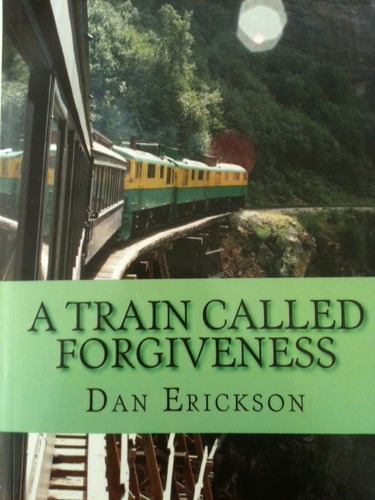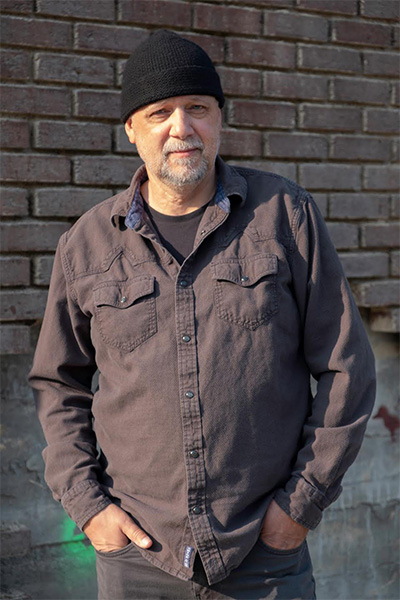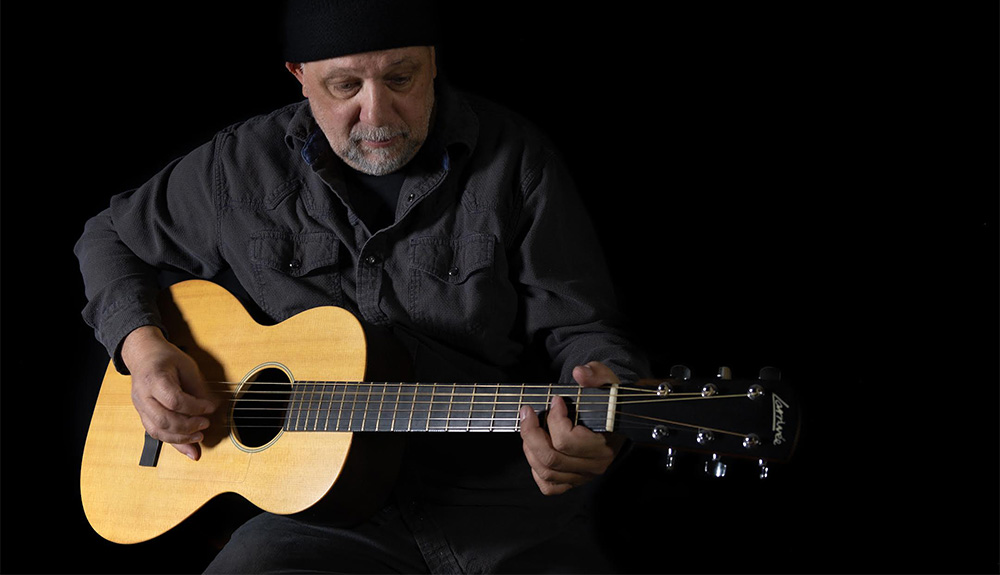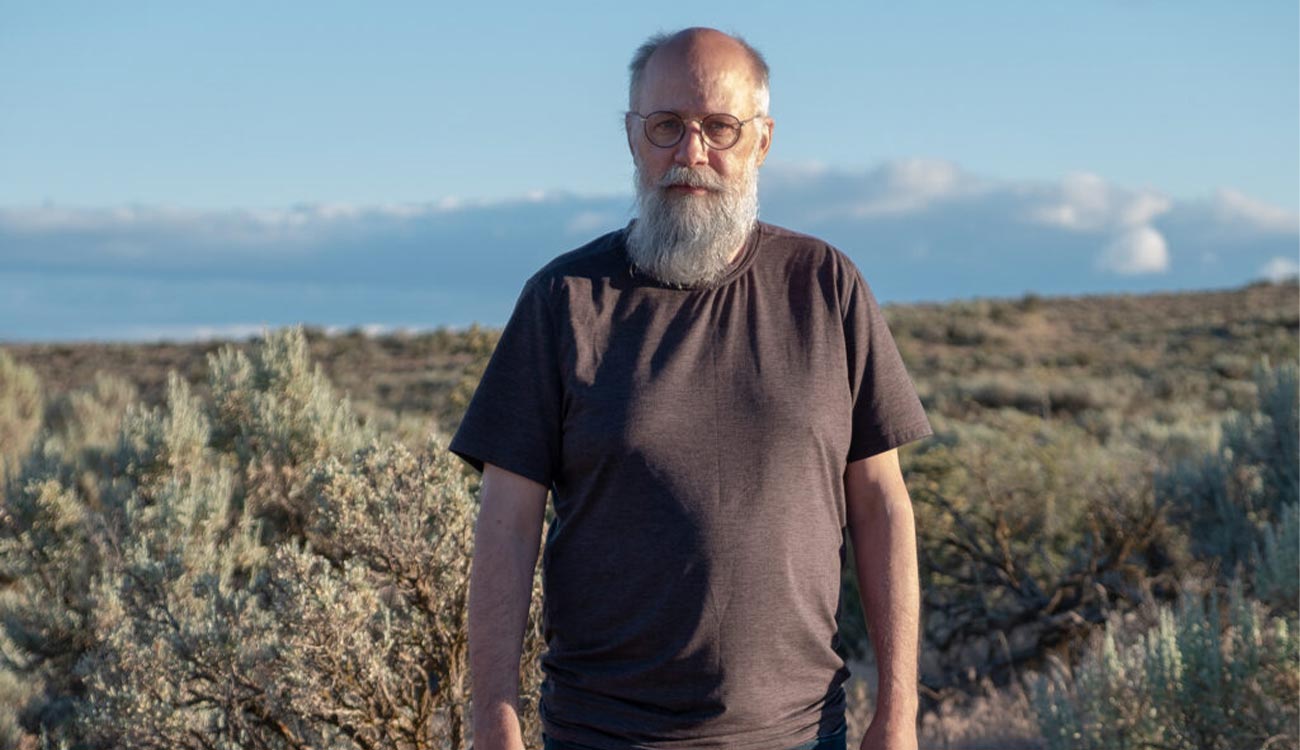Author, poet and songwriter Dan Erickson tackles new genre in sabbatical project
Dan Erickson doesn’t believe in writer’s block. That makes sense for someone who’s written more than 500 songs, half a dozen books and countless poems.
Now the Yakima Valley College communications instructor is exploring a new genre in his latest project, a memoir exploring his childhood moving with his family from Maine to Washington, where he grew up in a cult.
Erickson first attempted to write about that childhood experience more than two decades ago but failed.
“I got three-quarters of the way through, but I didn’t like it,” he said. “It was boring, so I set it down and didn’t touch it until my father passed away.”
In 2012, a year after his father’s passing, Erickson published “A Train Called Forgiveness,” a novel based on his experiences but with names, places and other elements that were fictionalized. That book was the first in what became Erickson’s “The Cult Trilogy,” with the other two novels being completely fictional stories.
“Ever since I wrote that first book, I’ve always in the back of my mind wanted to go back and do more of a true story,” Erickson said.
“Writing is like driving down a winding road at night, you never know what’s around the corner.”
— Dan Erickson
However, his first attempt revealed the challenges that plague many would-be memoirists.
“When I read works of family history and memoirs, they can sometimes be dull and not pull you into the story,” Erickson said. “So you really need to work on creative language and incorporating the present tense in your writing so that the story is much more active and puts the reader in the moment.”
That calls for stronger writing skills than required for a work of fiction, Erickson said.
“[A memoir] is a little more intimidating than other forms of writing. It feels like it really needs to be done right.”
A homecoming
Writing “A Train Called Forgiveness” was a healing process for Erickson, who recalled crying as he wrote some of the scenes in the novel.
“A big theme is forgiving people who have done us wrong. Even if you haven’t seen them in decades or they’re dead, forgiving helps with healing,” he said. “What I found when people read that first book, it didn’t just relate to cults. A lot of people reached out and said it helped them deal with bad things in their past, stuff they were holding in and letting it fester.”

One of the catalysts for Erickson’s renewed effort to write his memoir was returning to Maine during the COVID pandemic.
“I feel like, in a way my life was stolen from me when I was 10 years old and I was moved across the country from where I was raised,” Erickson said.
While “A Train Called Forgiveness” only briefly touches on Erickson’s childhood years in Maine, he expects his memoir will likely explore that period of life in more depth. He noted that during those early years, his father was a preacher who started making connections with people along the East Coast who would eventually lead the family into a cult and prompt their move to Washington.
While it’s been decades since Erickson lived in Maine, the return has come with a feeling of freedom.
“There’s a part of me that wants to say ‘eff you’ to everything that happened and everyone who was a part of pulling me away from my true home,” he said. “I’m home and I survived and I came back to where I was supposed to be.”
“One of the most important things I can do as a teacher is to help [students] understand the power of their own story.”— Dan Erickson
Getting ready
To prepare for his new project, Erickson took part this spring in a memoir writing workshop with Rachael Cerrotti, an award-winning author and educator whose 2021 memoir “We Share the Same Sky” won the Maine Literary Award.
During class sessions, Erickson said he’s learned about skills that are specific to memoir writing, such as using photographs to generate memories and emotions. He’s also completed numerous writing prompts intended to plant seeds for his project; one prompt, for example, asked participants to write about an event from two perspectives, the first as if the event was happening in the present and the second as if the event happened years earlier.

Erickson expects his memoir to be organized differently than “A Train Called Forgiveness,” which flashed back and forth because scenes drawing from his childhood and from his late 20s. At the same time, Erickson notes that he tends to not do too much outlining.
“Writing is like driving down a winding road at night, you never know what’s around the corner,” he said.
Inspiring creativity
During Erickson’s 19 years teaching at YVC, he’s taught classes on feature writing, public speaking, blogging, mass media and more. And while his creative work helps inform his teaching, his interactions with students also help inspire his own creative work.
He notes, for example, that in his public speaking classes he asks students to follow a formula as they outline their presentations.
“Pop songs, speeches, et cetera, are all formulas. They’re something that the general population can understand and follow,” he said.
While formulas are often essential for commercial success, Erickson also tells students that it’s important to know when the time is right to break out of a formula.
“So when my students are outlining, I say ‘I want you to use the formula, but in your speech if you break out of the formula a bit, it can make it unique and have more of an impact,” Erickson said. “There’s that open-ended side of creativity and, in my own writing and music, that’s what I’ve really tried to do in the past five years is balancing the creative and formula.”
Erickson rarely brings up his experiences and trilogy the inspired directly in his classes, but he advises students struggling to know what to write about to reflect on their own lives.
“Often students will say they don’t have anything to write about,” Erickson said. “I tell them ‘Share your story as much as you can because sharing leads to healing and continued success.’ One of the most important things I can do as a teacher is to help them understand the power of their own story.”

During Erickson’s 19 years teaching at YVC, he’s taught classes on feature writing, public speaking, blogging, mass media and more. And while his creative work helps inform his teaching, his interactions with students also help inspire his own creative work.
He notes, for example, that in his public speaking classes he asks students to follow a formula as they outline their presentations.
“Pop songs, speeches, et cetera, are all formulas. They’re something that the general population can understand and follow,” he said.
While formulas are often essential for commercial success, Erickson also tells students that it’s important to know when the time is right to break out of a formula.
“So when my students are outlining, I say ‘I want you to use the formula, but in your speech if you break out of the formula a bit, it can make it unique and have more of an impact,” Erickson said. “There’s that open-ended side of creativity and, in my own writing and music, that’s what I’ve really tried to do in the past five years is balancing the creative and formula.”
Erickson rarely brings up his experiences and trilogy the inspired directly in his classes, but he advises students struggling to know what to write about to reflect on their own lives.
“Often students will say they don’t have anything to write about,” Erickson said. “I tell them ‘Share your story as much as you can because sharing leads to healing and continued success.’ One of the most important things I can do as a teacher is to help them understand the power of their own story.”
